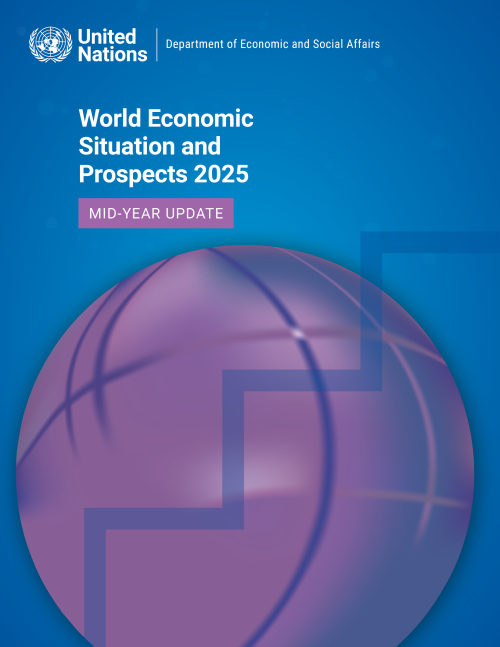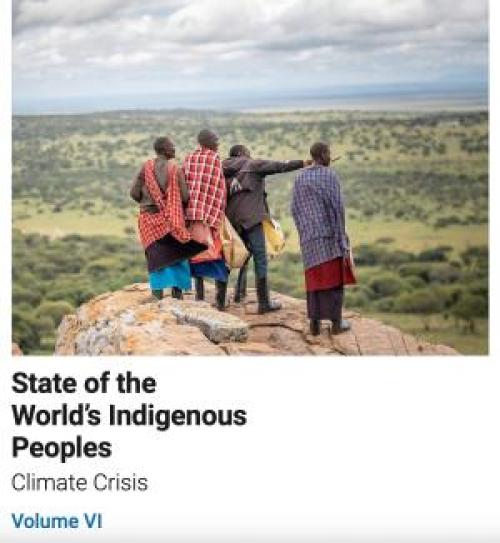
Global economic output is forecast to grow by 2.7 per cent in 2026, slightly below the 2.8 per cent estimated for 2025 and well below the pre-pandemic average of 3.2 per cent.
During 2025, unexpected resilience to sharp increases in U.S. tariffs, supported by solid consumer spending and easing inflation, helped sustain growth. However, underlying weaknesses persist. Subdued investment and limited fiscal space are weighing on economic activity, raising the prospect that the world economy could settle into a persistently slower growth path than in the pre-pandemic era.
The report notes that a partial easing of trade tensions helped limit disruptions to international commerce…

The World Public Sector Report 2025 focuses on the role of supreme audit institutions (SAIs) in the implementation of the Sustainable Development Goals (SDGs). The main objectives of the Report are to: (i) provide a global picture of SAIs’ contribution to SDG implementation, follow-up and review in general and in specific SDG areas; and (ii) to examine how the positioning of SAIs in national accountability systems has evolved since 2016 due to the work of SAIs on SDGs. The report aims to present a comprehensive analysis of SAIs’ work related to the SDGs since 2016; analyze the impact of the prioritization of SDG audits on SAIs’ strategies, audit plans and methods of work; identify…

Demographic Yearbook 2024 is the 75th issue in a series published since 1948. Through the cooperation with the National Statistical Offices, official demographic statistics are compiled in the Yearbook, as available, for more than 230 countries and areas of the world up to the reference year 2024. This edition of the Yearbook contains chapters on the population size and distribution, the population of capital cities, fertility, foetal mortality, infant and maternal mortality, general mortality, nuptiality and divorce.

Urbanization is reshaping the global landscape of human life. Since 1950, the share of the world’s population living in urban areas has surged, and it is projected to continue rising through 2050. This report presents the highlights of the 2025 Revision of the World Urbanization Prospects and offers a concise yet powerful overview of this transformation, combining global and regional trends with country-level insights spanning the period from 1950 to 2050. At the heart of this edition is the Degree of Urbanization, a harmonized, spatially based approach that enables meaningful international comparisons, alongside results based on national definitions. The dataset includes the latest…

As the United Nations marks its 80th anniversary in 2025, this report by the Department of Economic and Social Affairs (UN DESA) traces the evolution of sustainable development within the UN system. It highlights the organization’s role in shaping both the understanding and the practical application of sustainable development.

The UN DESA Annual Highlights report is a tool to communicate the contributions of the Department to the realization of internationally agreed development goals and shared social, economic, and environmental aspirations. It showcases the Department’s role in gauging trends, building capacities, and shaping solutions. UN DESA Highlights 2025 covers activities over the period of the 79th Session of the General Assembly (September 2024 – August 2025) and reflects the Department’s response to the set priorities and expressed needs of Member States. Seven (7) thematic chapters showcase how UN DESA put its expertise to the task of supporting Member State efforts to implement the 2030 Agenda…

The global economy is expected to experience subdued growth in the coming months amid a challenging trade environment and heightened macroeconomic uncertainties. The world economy is projected to grow by 2.5 per cent in both 2025 and 2026 — below the 2.8 per cent recorded in 2024 and the pre-pandemic average of 3.2 per cent (2010–2019). The 2025 forecast has been raised by 0.1 percentage points since May, while the 2026 outlook is unchanged, with both remaining well below expectations at the start of the year. The modest upgrade to the 2025 outlook reflects stronger-than expected frontloading of economic activity ahead of new U.S. tariffs, lower effective U.S. tariff rates than initially…

Progress on the Sustainable Development Goals: The Gender Snapshot 2025 is the latest edition in an annual series produced by UN Women and the United Nations Department of Economic and Social Affairs. Covering all 17 Goals of the 2030 Agenda for Sustainable Development, the report spotlights the latest data and evidence on gender equality, tracking trends and revealing progress and gaps.
The 2025 Gender Snapshot sounds the alarm: If current trends continue, the world will reach 2030 with 351 million women and girls still living in extreme poverty and the Sustainable Development Goals, particularly SDG 5 to achieve gender equality and…

The United Nations Department of Economic and Social Affairs (UN DESA) supports and works together with small island developing States (SIDS) on a range of initiatives tailored to the unique sustainable development challenges facing these island nations. This document highlights the ways in which UN DESA provides analysis, capacity development and intergovernmental support in line with the Department's six action areas.

The Sustainable Development Goals Report 2025 marks the tenth annual stocktaking of global progress toward the 2030 Agenda for Sustainable Development. With the 2030 deadline only five years away, the report delivers a stark assessment: the Sustainable Development Goals have improved millions of lives, but the current pace of change is insufficient to fully achieve all the Goals by 2030.
The report reveals real and substantial development gains during the past decade. Since 2015, the world has made notable strides in expanding access to education, improving maternal and child health, and bridging the digital divide. Effective prevention efforts have significantly reduced the…

The world economy is at a precarious moment. Heightened trade tensions, along with policy uncertainty, have significantly weakened the global economic outlook for 2025. Higher tariffs—resulting in a significant increase in the effective tariff rate in the United States of America—are likely to strain global supply chains, drive up production costs and delay critical investment decisions, while also contributing to financial market volatility. Global economic growth is now projected to slow to 2.4 per cent in 2025, down from 2.9 per cent in 2024, and 0.4 percentage points below the January forecast. The downward revisions in growth forecasts are broad-based, affecting both developed and…

The sixth edition of the State of the World's Indigenous Peoples focuses on Climate Crisis. It focuses on the vital role of Indigenous peoples in addressing the impacts of climate change. Although Indigenous Peoples account for only around 5 per cent of the world’s population, they effectively manage and protect an estimated 80 per cent of the Earth’s biodiversity and about 40 per cent of protected areas and ecologically intact landscapes. Since Indigenous Peoples first came to the United Nations, they have emphasized the fundamental importance of their relationship with their lands, territories and resources, which hold a deep cultural and spiritual significance within their societies…
 Welcome to the United Nations
Welcome to the United Nations